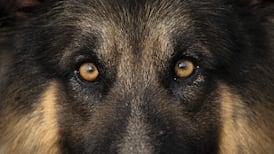Rising cattle thefts and livestock rustling threaten the traceability system on which the safety of Irish beef was founded, the Irish Farmers’ Association (IFA) has said.
The organisation believes the tendency by Irish people to under-report crimes, especially less serious offences, means the Garda’s official crime data does not accurately reflect the type and frequency of offending across the State.
The IFA also believed the policing service available in rural areas is not as good as that in urban centres.
Association president Eddie Downey said cattle theft, of which there were 48 cases in the first six months of the year, would "wipe out" the income of a smaller farm, with thefts of up to 100 head of cattle witnessed.
He was most concerned about the damage such thefts and the processing of stolen animals into the food chain could have for the reputation of Ireland as a food-producing country with tight regulations and traceability.
‘Cattle rustling’
“While machinery and other thefts on farms are worrying, I think the whole area of cattle rustling and cattle theft... creates a grave and real worry for us,” Mr Downey told he joint Oireachtas Committee on Justice during a session on rural crime.
He said the continued profitability of theft of livestock, in light of the issue of traceability of meat products from the farm through the food chain, was of most concern.
“Where are these animals going, how are they being processed, how are they being brought through the system, who is the ultimate customer for them?” he asked.
“That’s hugely worrying for us and that’s why we put €10,000 up as a reward, to try and find out exactly what’s going on.”
Cross-Border element
He believed major progress was being made, with gardaí “closing in” on some of the issues. However, there was likely a cross-Border element to at least some of the thefts, and the IFA was working with the Ulster Farmers’ Union to identify those responsible and those who were buying stolen animals or the products derived from them.
“Some of those criminals have to have knowledge in dealing with animals. Not just anybody can walk into a field and load them, for a start. So there’s a group, or groups, of people involved in this.”
Mr Downey added stolen cattle were “not just going to one place” to be slaughtered and processed. He believed unlicensed abattoirs were very rare.
The IFA said it was clear many people in rural Ireland now viewed the reporting of some low-level crime as unnecessary or pointless. This has led to a situation where crime data did not reflect the reality of crime rates.
‘Almost siege mentality’
IFA national treasurer Jer Bergin said the fear of crime should not go unchecked. There was an “almost siege mentality” in some parts of rural Ireland, with fearful residents erecting electric gates and CCTV cameras and feeling “locked in” to their homes when they turned their alarms on at night, he said.
This fear was a problem, and it was important organisations such as his involved communities in their anti-crime projects in order to “release some of that fear”.
Mr Bergin added “people do not have to live in fear” and it was important “not to turn Ireland into a prison camp”.











